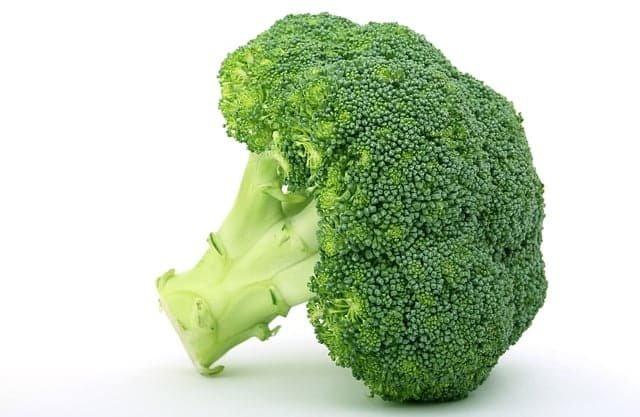Broccoli or Chicken: Understanding the Benefits of Broccoli and Chicken for Your Diet.
Broccoli:
A super healthy veggie packed with vitamins, minerals, fiber, and things called antioxidants. These antioxidants are like little defenders that help our body stay strong and healthy. Eating broccoli can do good things like calming down inflammation (like when a part of your body gets all red and sore), keeping your blood sugar steady (so it doesn’t go too high or too low), and making your immune system tougher (so it can fight off bad stuff).
Nutrition Facts:
When you take a bite of raw broccoli, it’s mostly water (almost 90%!), some carbs (about 7%), a bit of protein (around 3%), and hardly any fat. And guess what? It doesn’t have many calories either – just about 35 calories in a small cup of it.
Here are the facts for that little cup of raw broccoli (which is around 90 grams or 3 ounces):
- Calories: 35
- Protein: 2.3 grams
- Carbs: 5.6 grams
- Fiber: 2.2 grams
- Fat: 0.3 grams
- Vitamin C: This is like a superhero vitamin that helps keep you healthy. There’s 91% of the good stuff you need each day in that cup of broccoli.
- Vitamin K: This one is important for blood and bones. You get 77% of what you need in that cup.
- Folate: This is super necessary, especially if someone is going to have a baby. It helps with growing and making cells. You get 15% of what you need.
- There are also a tiny bit of other things like potassium, magnesium, iron, and calcium in there.
Carbs:
The carbs in broccoli are mostly fiber and some natural sugars. Don’t worry, these sugars are the good kind found in fruits. The whole carbs package in a cup of broccoli is really low, just 3.4 grams of the kind that your body can use after you take away the fiber.
Fiber:
Fiber is like a helper for your tummy. It makes sure things move smoothly and can even help with losing weight. In that little broccoli cup, you get 2.2 grams of fiber, which is around 8% of what’s recommended.
Vitamins & Minerals:
Vitamins and minerals in broccoli are like a team of nutrients that keep your body running well. Here’s a brief overview of what’s inside:
- Vitamin C: This one is great for your immune system and skin.
- Vitamin K1: It helps your blood clot (like when you get a cut) and your bones stay strong.
- Folate: Perfect for growing and staying healthy.
- Potassium: Keeps your heart and blood pressure happy.
- Manganese: A tiny bit of this is good for your whole body.
- Iron: This helps your blood carry oxygen around.
And remember, there are even more vitamins and minerals in broccoli, but these are some of the big ones.
Related…………20 easy broccoli soup recipes
Why Broccoli is Good for You?
Broccoli is a type of vegetable that can do really good things for your health. It might taste a bit strong because it has special compounds in it that are good for you. These compounds can help you in a few different ways.
Helps Prevent Cancer
Cancer is when bad cells grow really fast and make you sick. Broccoli has stuff inside it that might help stop cancer from growing. People who eat broccoli and similar veggies might have a lower chance of getting certain types of cancer like lung, colorectal, breast, prostate, pancreatic, and stomach cancers.
The special things in broccoli, called isothiocyanates, are like defenders that fight against cancer. They can help your body fight off bad stuff, decrease swelling, and even stop cancer from getting worse.
Keeps Your Cholesterol in Check
Cholesterol is something your body uses, but too much of it can be a problem. Broccoli can help with that. It has things that can make your body get rid of extra cholesterol. This can be really good for your heart and reduce the risk of heart disease.
Good for Your Eyes
Broccoli is like a friend to your eyes. It has things in it called lutein and zeaxanthin, which can help keep your eyes healthy. They might lower the chance of a problem called age-related macular degeneration, which can make it hard to see. Also, broccoli has something called beta carotene that can make your eyesight better, especially if you don’t get enough vitamin A.
Things to Keep in Mind
Eating broccoli is usually safe and healthy, but there are a few things to remember.
Be Careful with Your Thyroid
Broccoli has something called goitrogens, which might not be good for your thyroid if you eat too much of them. But if you cook your broccoli, it’s usually okay because the cooking process gets rid of the thing that makes goitrogens a problem.
If You Take Blood Thinners
If you’re taking a medication called warfarin, you might want to talk to your doctor before eating a lot of broccoli. That’s because broccoli has a lot of vitamin K1, and it can affect how the medication works.
So, broccoli can be really great for your health in many ways, but just remember these things to stay on the safe side.
Chicken:
Lots of folks think that chicken is a good choice for staying healthy. It’s got protein, which is important for your body, and it also has some important nutrients like selenium and iron. But whether chicken is truly healthy depends on how you cook it and which part of the chicken you eat.
Here, we’ll break down the nutrition facts for different parts of a chicken. We’ll also talk about the good things about chicken and the not-so-good things, so you can figure out how to enjoy chicken dishes that are good for you.
Let’s Talk About Chicken Thighs
Chicken thighs are a part of the chicken that many people enjoy. They can be really tasty and have some important stuff for your body. Here’s what you need to know:
Nutrition Facts:
When you look at one chicken thigh without the skin (it’s like the outside layer), here’s what you’ll find inside:
- Calories: 135 (this is like energy for your body)
- Fat: 7.5 grams (this is a kind of energy source too)
- Sodium: 234 milligrams (this is like salt)
- Carbohydrates: 0 grams (no sugars or starches)
- Fiber: 0 grams (this helps your tummy feel good)
- Sugars: 0 grams (no sweet stuff)
- Protein: 16.9 grams (this helps your body grow and stay strong)
- Selenium: 16.2 micrograms (this is a kind of mineral your body needs)
- Niacin: 3.8 milligrams (this is like a vitamin)
Carbs:
Chicken thighs don’t have any carbohydrates, fiber, or sugar. They’re more about giving you energy from fats and protein.
Fats and Protein:
A chicken thigh without the skin has 7.5 grams of fat. Some of this fat is good for your body, but if you eat the skin, it will have even more fat. The skin has different types of fats in it.
One chicken thigh also gives you a good amount of protein – 16.9 grams. Protein is like building blocks for your body.
Vitamins and Minerals:
Chicken thighs have some special things inside called vitamins and minerals. One thigh gives you:
- Selenium: This is a mineral that your body needs, and you get 29% of what you need in one thigh.
- Niacin: This is like a vitamin that helps your body work well. You get 24% of what you need from one thigh.
- Phosphorus: Another mineral that’s good for your body. You get 12% of what you need from one thigh.
Calories:
In one chicken thigh, there are 135 calories. This is important to know if you’re trying to keep track of how much you eat.
Remember, chicken thighs can be tasty and good for you, but it’s also important to eat a variety of foods to make sure you get all the nutrients your body needs.
Why Chicken is Good for You?
Chicken is a type of meat that lots of people enjoy eating. It has some really good things in it that can help your body stay healthy. Let’s talk about the good stuff and some things to be careful about:
Helps with Strong Bones
Recent studies show that a special part of chicken called protein helps your bones stay strong. This protein works together with something called calcium to make your bones healthier.
Builds Muscles
Protein is like the building blocks for your muscles. When you eat chicken and do exercises that make your muscles stronger, your body can grow bigger and healthier muscles.
Heart Health
Chicken has a mineral called selenium. This mineral is like a protector for your heart. It keeps your heart healthy by stopping some bad things from happening, like sticky blood that can cause heart problems.
Thyroid Support
Selenium is also important for your thyroid. This is a part of your body that helps with how it works. Having enough selenium in your body can help prevent problems with your thyroid.
Good for Your Brain
Chicken has something called niacin. This is like a vitamin that helps keep your brain healthy as you get older. It might even protect your brain cells from getting hurt.
Things to Watch Out For
Allergies
Some people might be allergic to chicken, but this is rare. Sometimes, if you’re allergic to eggs, you could also have a problem with chicken. This usually happens when you touch raw chicken, not when you eat cooked chicken.
Not for Plant-Based Diets
If you’re eating a diet that doesn’t include animal products, chicken might not be a good choice for you because it comes from animals.
For Plant-Based Vitamins $ Minerals………..Read
Kidney Health
If you have kidney problems, you should be careful about how much protein you eat, including chicken. Talk to your doctor to figure out how much is right for you.
How to Buy and Cook Chicken?
You can buy different parts of a chicken, like the meaty parts or the whole bird. Chicken has labels like “free range,” “natural,” and “organic.” These labels mean different things about how the chicken was raised.
When you store chicken, put it in the fridge for a short time or freeze it for a longer time. When you cook chicken, make sure it’s fully cooked inside. You can use a thermometer to check the temperature and be sure it’s safe to eat.
Preparing Chicken
How you cook chicken affects how healthy it is. Roasting, broiling, or boiling are good ways to cook chicken without adding too much fat. Frying it or adding a lot of breading and sauces can make it less healthy.
So, while chicken can be a tasty and healthy choice, remember to cook it in ways that keep it good for your body.


